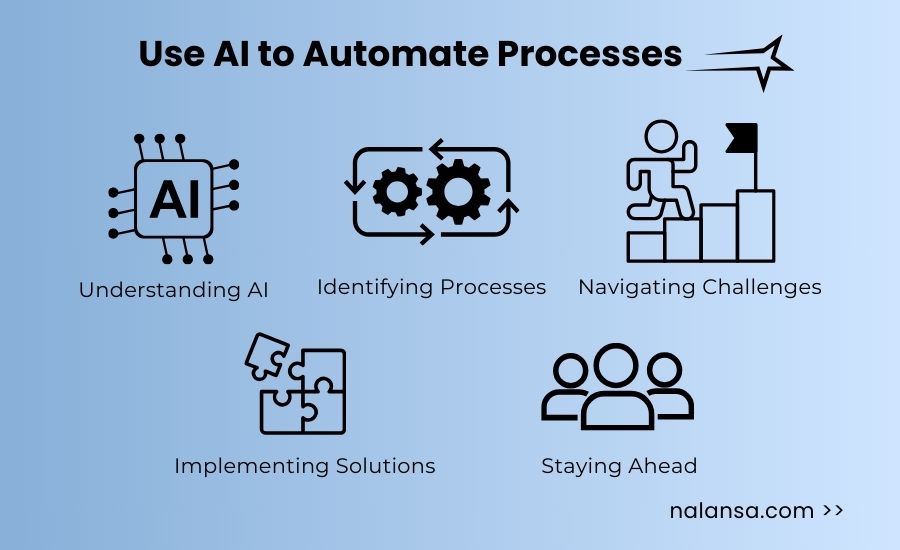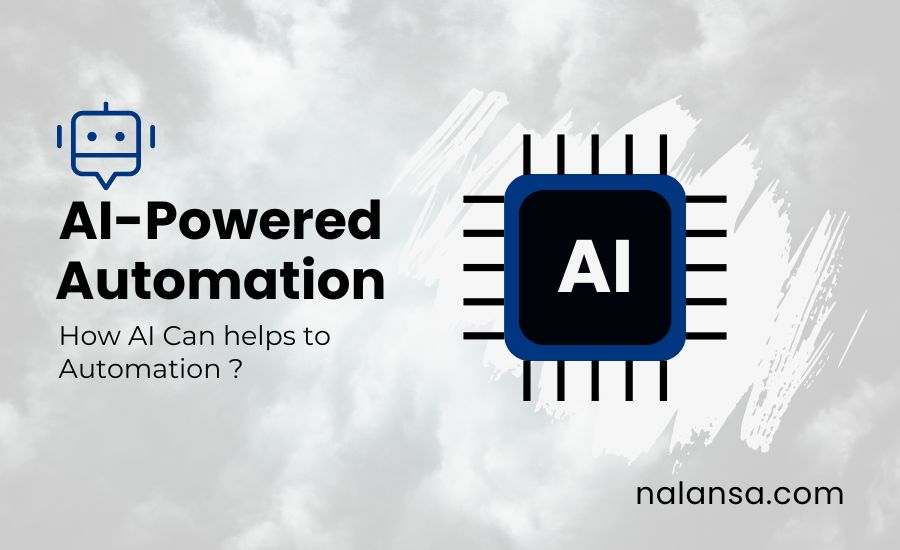In today’s fast-paced digital world, Canadian businesses are increasingly turning to Artificial Intelligence (AI) to streamline operations and stay ahead of the competition. Automation powered by AI is no longer just a trend; it has become an essential tool for companies looking to improve efficiency, reduce costs, and enhance decision-making processes. From automating routine tasks to predicting customer behavior, AI offers countless opportunities to optimize business performance.
As industries evolve, leveraging AI can give Canadian companies a significant advantage, helping them compete on both a local and global scale. In this article, we’ll explore how businesses across Canada can integrate AI-driven solutions to automate their processes, boost productivity, and future-proof their operations. Let’s dive in and see why now is the perfect time to embrace AI automation.
Table of Contents
- What is AI-Powered Automation?
- How Canadian Businesses Can Use AI to Automate Processes?
- Conclusion
- Frequently Asked Questions (FAQ)
What is AI-Powered Automation?
AI-powered automation refers to the integration of artificial intelligence technologies into automated processes to enhance efficiency, accuracy, and decision-making. Unlike traditional automation, which relies on predefined rules and scripts, AI-powered automation utilizes machine learning algorithms and data analytics to adapt and improve over time. This advanced form of automation can analyze vast amounts of data, identify patterns, and make predictions, allowing businesses to optimize their operations in real time.
For instance, in customer service, AI-powered chatbots can engage with customers, answer queries, and resolve issues without human intervention. In manufacturing, AI can monitor production lines, detect anomalies, and predict maintenance needs, significantly reducing downtime. As Canadian and U.S. businesses increasingly adopt AI-powered automation, they can streamline workflows, reduce operational costs, and enhance customer satisfaction. By leveraging these technologies, organizations position themselves to thrive in a competitive landscape, ultimately driving growth and innovation.
How Canadian Businesses Can Use AI to Automate Processes?

1. Understanding AI and Its Benefits
Artificial Intelligence (AI) is the capability of machines, especially computers, to mimic cognitive functions that are typically associated with human intelligence, such as learning, reasoning, and problem-solving. Integrating AI into workflows offers various benefits for Canadian businesses. Firstly, it increases efficiency. AI can process large amounts of data much faster than humans, leading to quicker decision-making. Secondly, it can result in significant cost savings. Automating repetitive tasks reduces the need for manual intervention, ultimately lowering operational costs. Lastly, AI enhances accuracy. AI algorithms minimize human error, ensuring more reliable and consistent results. This combination of benefits makes AI an attractive option for businesses looking to optimize their operations.
- Increased Efficiency : AI can process large amounts of data much faster than humans, leading to quicker decision-making.
- Cost Savings : Automating repetitive tasks reduces the need for manual intervention, lowering operational costs.
- Enhanced Accuracy : AI algorithms minimize human error, ensuring more reliable results.
2. Identifying Processes for Automation
The first step for Canadian businesses is to identify which processes can be automated. Several areas can benefit greatly from AI integration. For example, customer service is one significant area. Implementing chatbots can help businesses provide 24/7 support. This technology answers frequently asked questions and assists customers in real time. Another area is data analysis. AI can analyze sales data and market trends effectively, helping companies make informed business decisions. Lastly, inventory management is crucial. Automating inventory tracking optimizes stock levels, reducing excess and ensuring timely reorders. By identifying these areas, businesses can begin their journey toward automation.
- Customer Service : Implementing chatbots can help businesses provide 24/7 support, answering frequently asked questions and assisting customers in real time.
- Data Analysis : AI can analyze sales data and market trends to help companies make informed business decisions.
- Inventory Management : Automating inventory tracking can optimize stock levels, reducing excess and ensuring timely reorders.
3. Implementing AI Solutions
Once potential processes for automation are identified, Canadian businesses can start implementing AI solutions. The first step is to research available tools. Numerous AI platforms and software cater specifically to various business needs. Companies should explore different options and select the ones that align with their goals and objectives. Next, investing in training is essential. Providing employees with the necessary training ensures they can effectively use AI tools. This investment not only boosts confidence but also enhances productivity. Finally, businesses must monitor performance regularly. Assessing the effectiveness of AI solutions ensures they deliver the desired outcomes. Adjustments may be necessary to optimize performance and maintain efficiency.
- Research Available Tools : Numerous AI platforms and software cater specifically to various business needs. Companies should research and select the ones that align with their goals.
- Invest in Training : It’s crucial to provide employees with the necessary training to effectively use AI tools.
- Monitor Performance : Regularly assess the effectiveness of AI solutions to ensure they are delivering the desired outcomes. Adjustments may be necessary to optimize performance.
4. Navigating Challenges
While the advantages of AI are significant, Canadian businesses must also navigate potential challenges. One common hurdle is the initial costs. The initial costs associated with implementing AI technology can be quite significant. However, the long-term benefits often outweigh these costs over time. Another challenge is integration issues. Seamlessly integrating AI into existing systems can be complex. Therefore, businesses should work closely with IT professionals to ensure a smooth transition. Lastly, data privacy concerns are increasingly important. As AI relies heavily on data, businesses must prioritize data privacy and comply with regulations. This ensures they protect customer information and maintain trust.
- Initial Costs : Implementing AI technology can involve considerable initial expenses. Nonetheless, the long-term advantages typically surpass these upfront costs.
- Integration Issues : Seamlessly integrating AI into existing systems can be challenging. Businesses should work closely with IT professionals to ensure a smooth transition.
- Data Privacy Concerns : As AI relies heavily on data, businesses must prioritize data privacy and comply with regulations to protect customer information.
5. Staying Ahead of the Curve
To remain competitive, Canadian businesses should continuously explore new AI advancements. Staying informed about the latest trends and technologies enables companies to adapt and innovate effectively. Consistently participating in industry conferences, webinars, and workshops offers essential insights and valuable networking opportunities. By connecting with other professionals, businesses can share experiences and learn from each other. This ongoing learning process is crucial for leveraging AI successfully and achieving sustained growth.
Conclusion
As Canadian businesses embrace the power of AI to automate processes, they position themselves for success in an increasingly digital landscape. By understanding AI’s benefits, Marketing strategies, identifying suitable processes for automation, and implementing effective solutions, companies can enhance efficiency and reduce costs. Furthermore, improved customer satisfaction leads to increased loyalty. Ultimately, leveraging AI is not just a trend but a strategic move. This approach can lead to long-term growth and sustainability in the Canadian market. Embracing AI today will pave the way for a brighter, more efficient future.
Frequently Asked Questions (FAQ)
How is Canada using AI?
Canada is utilizing artificial intelligence across multiple sectors, including healthcare, finance, and customer service. In healthcare, AI aids in early disease diagnosis and personalized treatment plans. The finance industry employs AI for fraud detection and risk assessment. Additionally, businesses are adopting AI-powered chatbots to enhance customer experiences. With government support for research and collaboration, Canada is positioning itself as a leader in AI innovation, driving economic growth and efficiency across various fields.
Which Canadian businesses are using generative Artificial Intelligence and why?
Several leading Canadian businesses are adopting generative AI to enhance innovation and streamline operations. Companies like Shopify use generative AI to personalize customer experiences by generating tailored product recommendations. TD Bank integrates AI for fraud detection and customer service automation, improving efficiency and security. Additionally, Canva has incorporated generative AI for creative design assistance, allowing users to produce unique visuals quickly.



